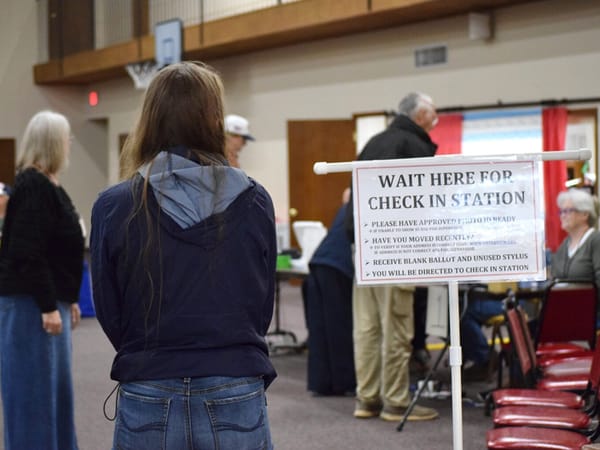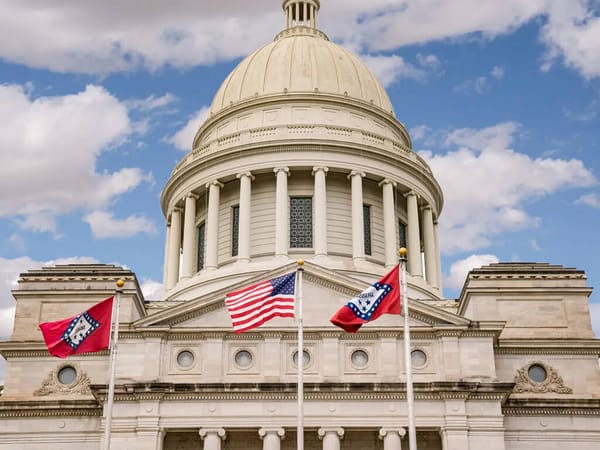June Set for District 26 Senate Vote After Governor Alters Timeline
Governor Sarah Huckabee Sanders revised the Arkansas District 26 special election plan, moving the general election from November to June 2026 after criticism from both parties. The race is already heating up around prison funding and representation concerns.

The special election to fill the Arkansas Senate seat left vacant by the death of senior Republican Sen. Gary Stubblefield earlier this month is already stirring political debate.
Governor Sarah Huckabee Sanders certified the vacancy and initially scheduled the general election for November 2026 at the site of her controversial prison plan, despite state law requiring that special elections be held within 150 days of a vacancy unless deemed impractical or burdensome.
On Friday, September 26, Sanders issued a proclamation scheduling the general election for Tuesday, November 3, 2026, with primaries set for Tuesday, March 3, 2026, and a potential runoff on Tuesday, March 31, 2026. After pushback from members of her own party and critics who argued the district would remain unrepresented during critical budget debates and questioned the delay, Sanders revised the timeline, moving the general election to June 9, 2026.
Senate District 26 Background
Senate District 26 is now regarded as a Republican stronghold, although it has a Democratic past. Former Democratic Sen. Eddie Cheatham narrowly won the seat in 2012 and 2016, before Republican Ben Gilmore defeated him in the 2020 general election.
In 2022, Gary Stubblefield secured a landslide victory, collecting 83.8% of the vote against Libertarian Gabriel Andreucetti. No Democratic candidate ran that year.
Stubblefield, a Republican from Branch, served 16 years in the Legislature and had been reelected last year to a term ending in January 2029. His death earlier this month created the current vacancy.
District 26 includes parts of Franklin, Johnson, Logan, and Sebastian counties, covering cities such as Barling, Booneville, Charleston, Clarksville, Greenwood, Lamar, Lavaca, Ozark, and Paris.
Franklin County Prison Debate
The upcoming special election is expected to center on Arkansas’s plan to build a new prison in Franklin County.
In October 2024, Governor Sanders announced the purchase of 815 acres north of Charleston for $2.9 million to build a 3,000-bed facility. Since then, the projected cost has nearly doubled, climbing from $405 million at the time of the announcement to more than $825 million. A $750 million funding bill to advance the project failed five times during the most recent legislative session, unable to secure the three-fourths majority required in the Senate. Lawmakers have expressed frustration over the Franklin County site selection, and Sanders’ limited cooperation during committee hearings has fueled criticism and intensified opposition to the plan.
The late Sen. Stubblefield had been a vocal opponent of the project, and Democratic Party Chair Marcus Jones described the prison as the defining issue of the special election: “This is Arkansas’s moment to reject corruption and cronyism and deliver a win for common sense and decency,” Jones said. “From the roads, to the water infrastructure, to the electrical grid, to the non-existent workforce, to the furious voters of Senate District 26, there’s not one good reason to build a brand new billion-dollar prison in Franklin County.
Primaries to Proceed
Both the Arkansas Republican and Democratic parties have confirmed they will hold primary elections to nominate candidates, with the primary dates remaining unchanged under the revised schedule.
As of today, three Republicans, Ted Tritt, Brad Simon, and Mark Berry, have officially declared their candidacies. Simon and Tritt, both businessmen from Paris, oppose the Franklin County prison project, while Mark Berry of Ozark, a military veteran and former adjutant general of the Arkansas National Guard, has not taken a position on the prison in his campaign announcement. Tritt and Simon had previously planned to run for House District 46, a seat soon to be vacated by term limited Rep. Jon Eubanks, R Paris.
GOP Chairman Joseph Wood emphasized that it is important for the people of the district to have the opportunity to choose their Republican nominee through a fair and open process, adding that a special primary election is the best way to ensure their voices are heard.
No Democrats have formally entered the race, but Democratic Party Chair Marcus Jones said the party sees the special election as an opportunity to connect with voters on accountability and state spending. He noted that nationally, Democrats have overperformed by 18 percent in special elections since Trump took office and that this election represents Arkansas’s moment to reject corruption and cronyism and deliver a win for common sense and decency. Jones also criticized the crowded Republican primary field, saying it reflects an effort to install a pro prison rubber stamp in the State Senate.
The Election Date Dispute
Although Sanders moved the general election to June, the revised schedule still places the vote after the 2026 legislative fiscal session, leading critics to argue that the district will remain unrepresented during critical budget debates. Republican candidate Ted Tritt of Paris said on Facebook that any step to shorten the time without representation is encouraging, but the new date remains unacceptable. Brad Simon added that leaving the seat vacant for so long is unconscionable, unacceptable, and unconstitutional.
Democrats have also objected to the timing. Democratic Party Chair Marcus Jones called the change a temporary fix to the serious bipartisan backlash Sanders is facing, saying she is openly defying Arkansas law. He emphasized that the governor has a legal responsibility to fill the vacancy within 150 days, noting that the updated election date is still 130 days past that deadline. Jones highlighted that over 85,000 residents of District 26 will go without Senate representation for 280 days, affecting both budget decisions and constituent services.
Tritt echoed these concerns, pointing out that District 26 will go through the spring fiscal session without a senator and remain unrepresented for more than 250 days. He warned that budgets will be written, priorities set, and votes on the Franklin County prison project taken without a voice for the district, leaving residents without input on decisions affecting schools, hospitals, farms, and jobs.
With the election now scheduled for June 9, the district is bracing for a vigorous contest as candidates and voters prepare for an intense and closely watched campaign.





